Mick Doyle was waiting. When he wasn’t looking at his watch, he was glancing towards the car park, wondering when the slackers would arrive.
It was a spring morning in 1987. This new concept called a World Cup was a month away from starting and Ireland had been handed a favourable draw; Wales in the opening game, then Canada and Tonga. Win that pool, and there was absolutely nothing to suggest they couldn’t, and a likely quarter-final date with England lay in wait.
So, hope and realism rhymed. Ireland making a World Cup semi-final wasn’t a pipedream but the justifiable expectation of a team who had finished first or second in four of the previous six Five Nations championships.
Doyle, their coach, had hatched a plan, revolving around the team’s world-class openside, Nigel Carr. And this was why his impatience was evolving into fury as the clock ticked on and his go-to flanker, as well as two other players, Davy Irwin and Philip Rainey, failed to show for practice.
Time really was precious, the amateur era restricting Doyle to two training windows before he announced his squad. This was one of them, hence his annoyance at the Carr no-show. How, Doyle thought, could he explain his game-plan to beat the Welsh when the key component of that strategy wasn’t there?
The session ended and Doyle’s ire grew. He had a tight itinerary to keep. Lunch then another training session in the afternoon. He was figuring out how to condense his message into that hour on the field when an IRFU official approached him in the canteen.

“Mick,” he said.
“What?” Doyle bellowed.
The official spoke quietly.
“There’s terrible news.”
Des Fitzgerald remembers hearing it.
A Dubliner, a prop, a self-made man, he wasn’t blind to the sacrifices his team-mates from Ulster were making every time they played for Ireland, not least his companion across the front row, Jimmy McCoy, whose personal safety was in jeopardy every time he travelled south of the border.
McCoy was a policeman based in Dungannon, Co. Tyrone, Brian McCall, his Ulster and Ireland colleague, an officer in the British Army. All the Ireland players knew this but none of them spoke about it, fully aware that a loose word could cost a life.
When the IRA member pressed the button on his detonator, Judge Maurice Gibson’s car was travelling in a northerly direction while Irwin, Carr and Rainey were venturing south, their cars passing just seconds before the bomb went off
“The respect I had for those Ulster players was enormous,” says Fitzgerald, “and it was something we all shared, every one of us from Leinster, Connacht and Munster, not just because they were brilliant players, but because of what they were doing. For Jimmy, playing for Ireland, even training with Ireland, meant risking his life. Whenever he came south, there was always a changeover at the border, cars swapped, security detail following him everywhere to keep him safe. We had undercover security on the floor of our hotel, on the team bus, at our training.
“You could always sense the boys (McCoy and McCall) were on edge. How could they not be?”
This day served as a brutal reminder.
A bomb had exploded at the border. Two people had been killed, a Lord chief justice and his wife. When the IRA member pressed the button on his detonator, Judge Maurice Gibson’s car was travelling in a northerly direction while Irwin, Carr and Rainey were venturing south, their cars passing just seconds before the bomb went off.
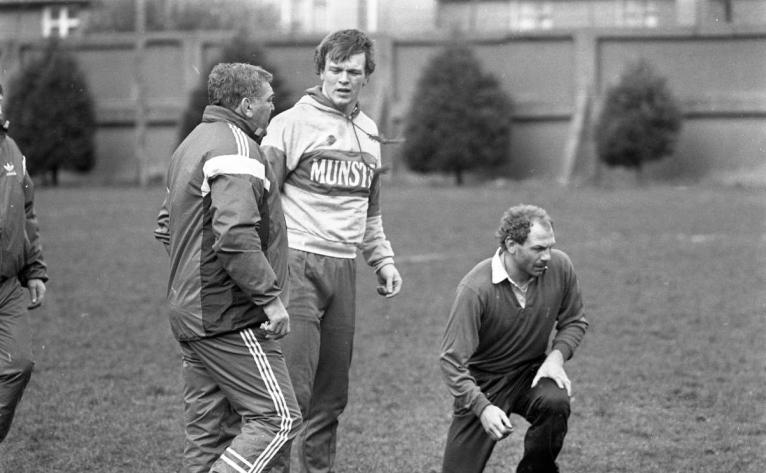
Had the three players left Belfast a minute earlier they would have missed the blast, would have made it to Doyle’s training session, would have heard the game plan, would have travelled to Wellington for that opening game, confident of beating Wales, just as they had done a few weeks earlier.
“We’d held England scoreless that year too,” remembers Fitzgerald.
Reaching a World Cup semi-final seemed so doable for Ireland back in 1987. But the tragedy isn’t that they failed to do so. The tragedy is that Nigel Carr, a beloved member of that team, never got to play international rugby again, his career ruined by that bomb.
We have a tendency in Ireland to overhype things, equating the failure to make a World Cup semi-final as a national embarrassment.
Certainly there have been missed opportunities. In 1987, Ireland had beaten Wales and England in the Five Nations, and had they repeated that trick in the World Cup then they would have made the last four and this quarter-final curse wouldn’t have ever become a thing.
Lynagh grounded the ball successfully, Australia won, went on to win the tournament and a pattern had been established. Ireland were a last eight team. That was their ceiling then and that remains their ceiling now
Then there was 1991, Australia at Lansdowne Road, New Zealand awaiting the winners in the semis. Ireland led with two minutes to go in that game when Rob Saunders, their scrum-half, lined up a clearance kick. “All he had to do was find touch, and by touch I mean row Z,” says Fitzgerald.
Instead he found David Campese. Sixty seconds later Michael Lynagh crossed the line. “I’ll never forget the silence when he did so,” says Nick Popplewell, Fitzgerald’s fellow prop on that ‘91 team. “I thought ‘great, he must have dropped it, otherwise there’d have been a cheer’.”
Alas, no. Lynagh grounded the ball successfully, Australia won, went on to win the tournament and a pattern had been established. Ireland were a last eight team. That was their ceiling then and that remains their ceiling now. France in ‘95, Australia again in 2003, Wales in 2011, Argentina in 2015, New Zealand in 2019. They’ve all had Ireland’s number.
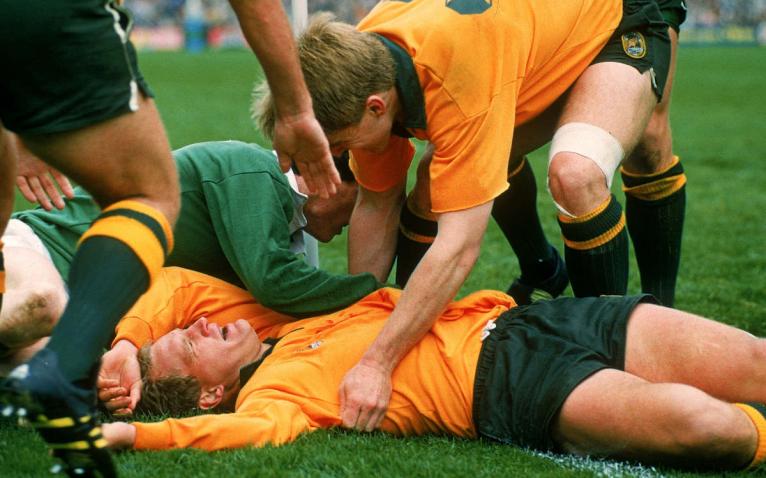
It’s why the world’s number one ranked team head to France this summer with the burden of history on their shoulders. Privately they’ll talk with intent about winning the tournament but their hardest opponent won’t be the Springboks, French or Wallabies. It’ll be their own demons.
Across the last number of weeks, RugbyPass has spoken with key figures from Ireland’s World Cup adventures, hearing their stories, tales of crushed dreams and near misses.
Those players and coaches represented the best of us, harbouring our hopes, striving for the same thing we all wanted. That the ultimate goal has yet to be delivered is unfulfilling, for sure. And yet it is because of those consistent failures that Irish rugby has transformed itself and put together a structure that is envied across the rugby world.
Cursed?
In certain ways, Ireland’s World Cup underperformances have been a blessing.
It was another eight years, and two further World Cup failures, before the amateur walls started to crumble in Irish rugby, losing to Argentina in a preliminary quarter-final in 1999 the catalyst for change
There was 1991, and a near strike by the players on the eve of the Australia match.
Fitzgerald was in the thick of things then, a senior member of the player’s committee who had negotiated a deal with a sponsor, an insurance company, who in turn wanted some bang for their buck. So, the players took part in some publicity shoots, aware there’d be money paid into their players pool.
However, the money was paid directly to the IRFU who refused to pass it on. Hence the possibility of a strike just days before the 1991 World Cup quarter-final. The IRFU eventually caved in. “They (IRFU) are full of Erich Honeckers,” said Fitzgerald at the time, “except in East Germany, the wall came down.”
It was another eight years, and two further World Cup failures, before the amateur walls started to crumble in Irish rugby, losing to Argentina in a preliminary quarter-final in 1999 the catalyst for change.
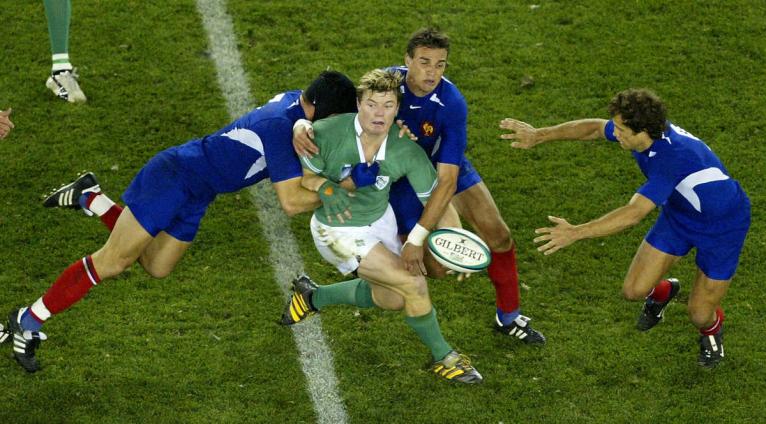
That was when central contracting began and after the Australian World Cup in 2003 and another near miss came further reform. “We were the width of a post away from beating Australia in the pool stage,” recalls Eddie O’Sullivan, the then Ireland coach. “So, that meant we finished runner up and got France in the quarters rather than Scotland.
“I never lost once to Scotland in my years as Ireland coach. But Bernard Laporte (the former France coach) was my nemesis.” Come the quarter-final, Ireland were out on their feet by half-time, then out of the tournament by full-time.
O”Sullivan led the post World Cup review and suggested radical change, a strength and conditioning revolution for the Union controlled players and something else which would cause consternation. “The players needed to be managed,” he says. “We hadn’t a deep playing pool and that World Cup had exposed this, particularly when injuries kicked in just before the France game.
“So I suggested that each player get a four-week holiday at the end of their season and then an eight-week pre-season before they played a game. The downside to that was that the internationals wouldn’t then be available for their provinces at the start of the new season. That was a hard sell to Matt Williams and Alan Gaffney (the then Leinster and Munster coaches).”
By 2007, they finally seemed ready to break their quarter-final duck. Instead they didn’t get out of the pool. Another disaster, another review, and another structural change that has become part of the norm
Yet it changed Irish rugby. These days Johnny Sexton plays as many games in a season for Ireland as he does for Leinster, his carefully monitored programme allowing him to prolong his career beyond his 38th birthday.
And it’s not just him. Brian O’Driscoll, Paul O’Connell, Ronan O’Gara, their longevity stemmed from how they were managed, frequently rested at various points of their club season, allowed to peak in time for internationals.
Results started to improve on the back of it. O’Sullivan had great days as Ireland coach, a first win over Australia in 23 years, first victory over the Springboks in 39, four wins on the trot against England, a first Triple Crown in 19 years, then two more in the following three seasons.
By 2007, they finally seemed ready to break their quarter-final duck. Instead they didn’t get out of the pool. Another disaster, another review, and another structural change that has become part of the norm. “We barely had any warm-up games in 2007,” says O’Sullivan. “Now there are always four. Declan (Kidney, his successor) lost his four warm-ups in 2011 but had the team primed for the World Cup. That was the year Ireland topped the pool for the first time.”
And yet they couldn’t smash their personal ceiling, Wales outthinking them in the last eight.
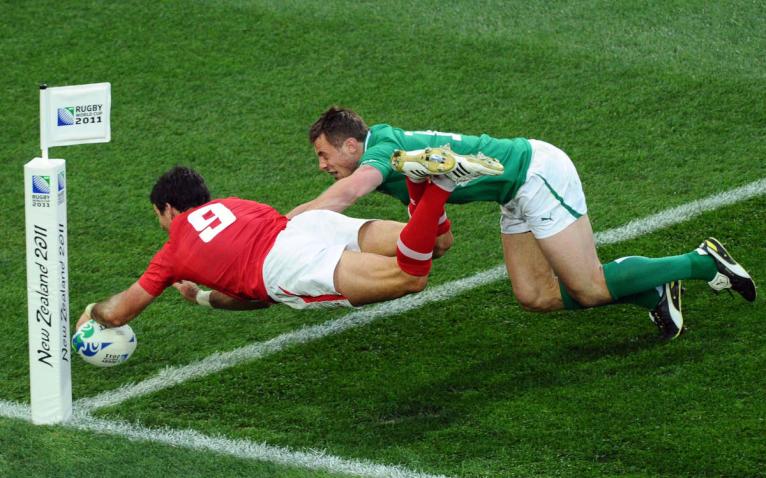
A review inevitably followed, O’Sullivan’s input once again asked for. “Pa Whelan (the former Ireland manager) asked me to come up with a blueprint for a high performance director,” he says. “When I saw the job spec, it was practically 90 percent of what I suggested.”
Again Irish rugby had learned from its World Cup mishaps. From getting its players back home and into their club system in 1999, to managing their workloads post 2003, they were now realising the coach needed a high performance director to plan the future.
Enter David Nucifora, a straight talking and not universally popular Australian who has made tough decisions, but also some very good ones, notably integrating England’s talented but discarded coaching team from 2015 into the Irish system.
Grand Slams, Heineken Cups, URC titles, tours to Australia and New Zealand, Irish rugby, and its provinces, have won them all. Yet in nine editions of the World Cup they have yet to win a quarter-final
“I know this will sound ironic given how I was an agitator back in the day,” says Fitzgerald, “but the Union deserves enormous credit for its societal impact in Ireland. The rugby community is small but it’s close-knit. There is a conviviality there, which in a north/south context, is very important.
“Plus, on the pitch, look at where we are. We went decades without a win away to France, or a win anywhere against South Africa or Australia. Now we beat those teams regularly. We have won three Grand Slams in the last 14 years, our only one prior to then was in 1948. That stems from good players, obviously, but also from solid structures. Having been resistant to change, to professionalism, way back at the start, they have embraced it since.”
Grand Slams, Heineken Cups, URC titles, tours to Australia and New Zealand, Irish rugby, and its provinces, have won them all.
Yet in nine editions of the World Cup they have yet to win a quarter-final.
We can’t pretend this isn’t a big deal because it is.
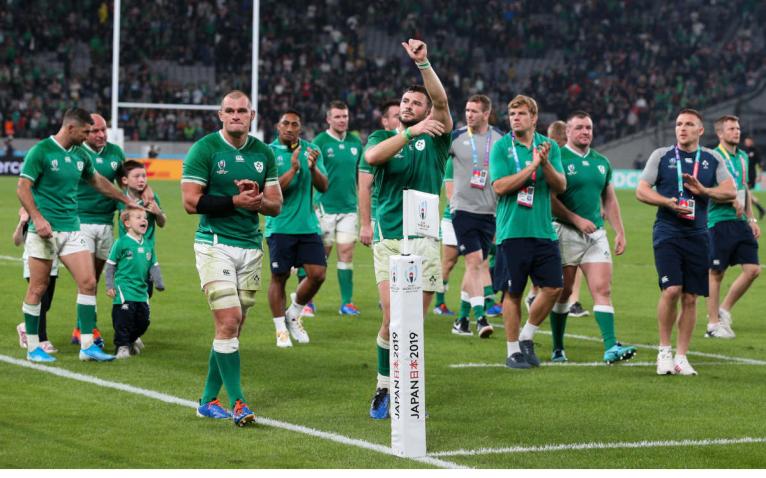
But long before losing World Cup meltdowns became a thing, Irish rugby had a genuine disaster, the psychological scars of survivors taking years to heal.
The remarkable thing is how Irwin, Carr and Rainey have moved on. Bitterness doesn’t exist. I’ve sat in Carr’s kitchen, heard him speak about the importance of getting on with life, even as he subconsciously rubbed his neck which still hurts from that explosion.
He is a generous man, generous with his time and also his emotions. The bomb didn’t just ruin his playing career but also his nine-to-five. A year after it stopped him playing in the 1987 World Cup, he had to leave his job as a forensic scientist because the role occasionally involved seeing dead bodies being removed from cars.
So, we really need to be careful about how we phrase things. Ireland never making a World Cup semi-final is unfortunate, careless perhaps. But tragic? No, that is when someone’s life is irrevocably changed for the worse in the name of Irish freedom, when irony of ironies, the victim was on his way to train with an Irish international team, and play under the Irish flag.
“Had Nigel played against Wales and England in 1987, we would have won,” says Fitzgerald, “he was crucial to us. Our game-plan had to change. We would have been semi-finalists at the first attempt.”
They were two minutes away from doing it at the second attempt only for that missed touch and Lynagh. In 2003 they could have got there, in 2011 and 2015, they should have.
But a tragedy is not when a team comes home early from a tournament. A tragedy is when two people, Lord Justice Maurice Gibson and his wife, Cecily, don’t come home at all.



Excellent article by an author who writes beautifully. We simply have to do it for all those that have gone before. If we can get to a QF and win it, I'd fancy our chances. We've beaten everyone on a regular basis and no one will look forward to playing this Ireland team.
I'm an Irish fan now. Thank you for this incredibly well written article.
Allblacks looking forward to meeting Ireland at the quarter for the second world cup in a row.
Thank you for this.
Très bel article qui montre que l’humain est au cœur du jeu.
Bravo !
Thank you
Beautifully written